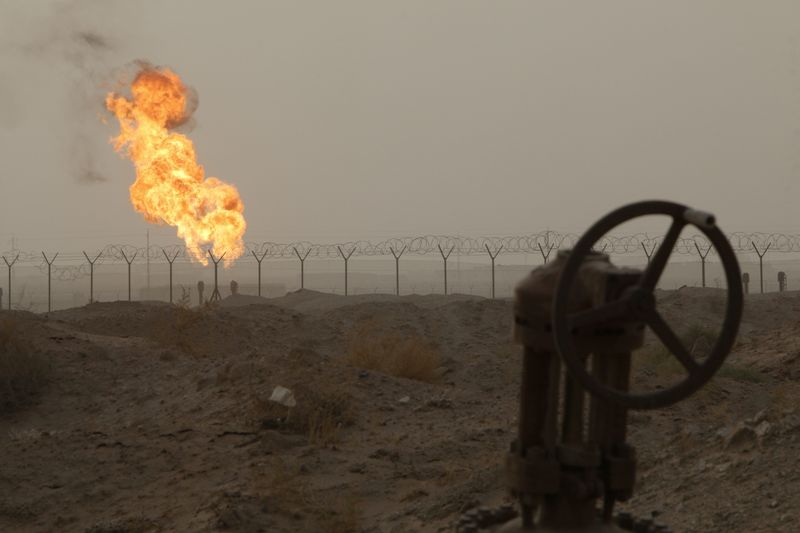
By Yuka Obayashi
TOKYO (Reuters) – Oil prices rose in early Asian trade on Tuesday, reversing the previous session’s loss as concerns that an escalating Middle East conflict could hit supplies outweighed fears of a possible U.S. recession that could hurt demand in the world’s top oil consumer.
Several U.S. personnel were injured in an attack against a military base in Iraq on Monday, three U.S. officials told Reuters, as concerns in the region mounted following last week’s killing of senior members of militant groups Hamas and Hezbollah.
U.S. West Texas Intermediate crude futures climbed $1.18, or 1.6%, to $74.12 per barrel by 1022 GMT, or in early trade in Asia.
On Monday, both WTI and Brent benchmarks fell by 0.7-0.8% as a selloff continued on global stock markets. Oil’s slide was limited by worries Iran would retaliate for the assassination of a Hamas leader in Tehran may lead to a wider war in the Middle East.

On Monday, a senior ally of President Vladimir Putin arrived in Tehran for talks with Iranian leaders including the president and top security officials as the Islamic Republic weighs its response to the killing of a Hamas leader.
Israeli Prime Minister Benjamin Netanyahu faces anger in Israel and abroad over his handling of Gaza ceasefire talks which have faltered, three Israeli officials said, as fears mounted that the crisis could spiral into war with Iran.
This post is originally published on INVESTING.




